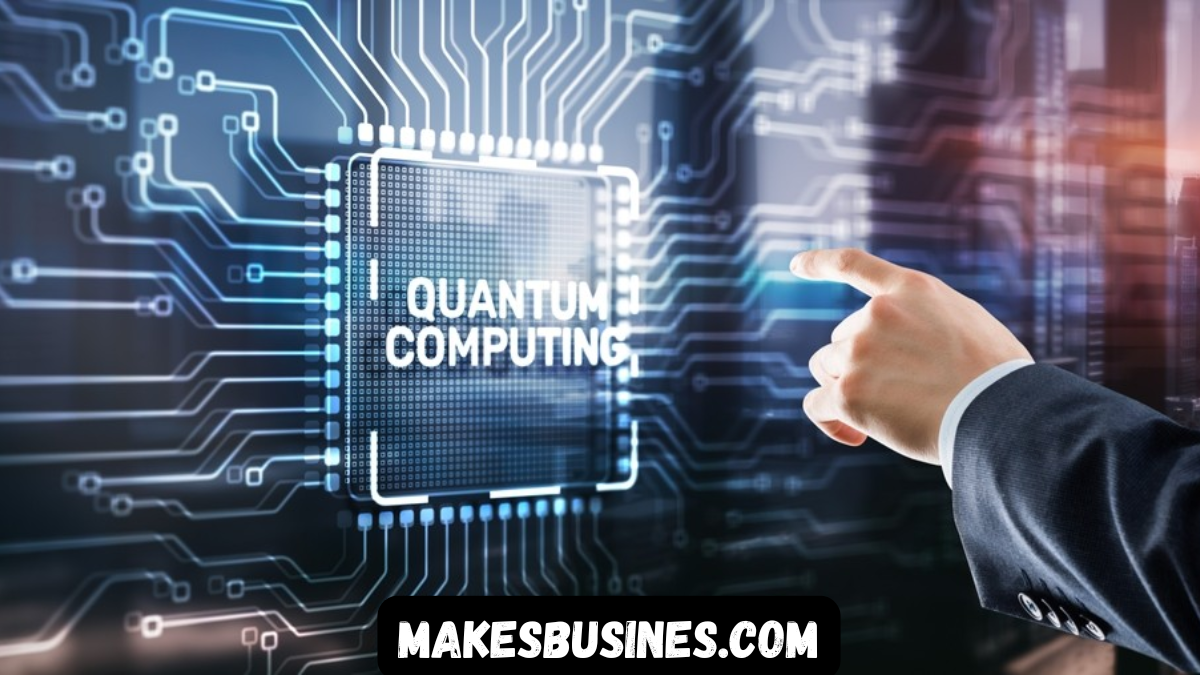Business Computing World is more than just a conceptual term—it’s the framework that defines how businesses today operate, grow, and compete in an increasingly digital environment. It encapsulates the evolving relationship between commerce and computing, covering everything from legacy systems to modern cloud platforms and artificial intelligence. As digital transformation becomes a core business priority, understanding the scope and impact of business computing is essential.
The Origins and Historical Context of Business Computing
The origins of computing in business can be traced back to the era of mainframes in the 1950s and 1960s, when organizations started automating basic administrative tasks. These early systems were limited in function but vital in demonstrating the potential of computing for efficiency and scale. By the 1980s, the advent of personal computing made technology accessible to small businesses. Throughout the 1990s, enterprise applications like ERP and CRM started dominating, integrating core operations across departments.
Digital Transformation in Modern Enterprises
With the turn of the century, businesses began undergoing massive digital transformation. Traditional business processes were re-engineered through the lens of digital innovation. Cloud computing replaced physical infrastructure, while mobility, big data, and agile development changed how services were delivered. In this new Business Computing World digital platforms are no longer optional—they are the primary engines of growth and innovation.
The Impact of Artificial Intelligence and Automation
Artificial Intelligence has transformed the Business Computing World by introducing smart systems capable of learning and adapting. From customer service bots to machine learning-based financial forecasting, AI enhances decision-making and productivity. Automation powered by AI is increasingly taking over repetitive tasks, freeing up employees to focus on strategic and creative work. Industries like finance, healthcare, and logistics are being reshaped by this intelligent automation.
Cybersecurity as a Core Pillar of Business Computing
As businesses rely more heavily on digital systems, cybersecurity has become a cornerstone of business computing. Data breaches, phishing attacks, and ransomware are persistent threats. Organizations now integrate cybersecurity from the ground up, ensuring secure networks, encrypted communications, multi-factor authentication, and compliance with global regulations. Protecting data integrity and customer trust is essential in the interconnected Business Computing World.
Cloud Infrastructure and Its Strategic Role
Cloud computing is central to the Business Computing World, offering scalable resources, lower costs, and unprecedented agility. Businesses no longer need massive on-site servers or data centers. Instead, they utilize services like IaaS, PaaS, and SaaS to deliver applications and infrastructure on demand. Cloud adoption enables remote work, collaboration, and global expansion, turning IT into a flexible and dynamic service layer.
Big Data and Business Intelligence
In the Business Computing World, data is not just a byproduct—it’s a powerful resource. Big data technologies allow businesses to collect, store, process, and analyze vast amounts of structured and unstructured data. Business Intelligence (BI) tools transform this data into actionable insights. Companies can track trends, monitor performance, and forecast future outcomes with higher accuracy, driving data-informed strategies and operations.
The Rise of Mobile Computing and Remote Work
Mobile computing has drastically altered the way businesses operate. Smartphones, tablets, and wireless networks empower employees to work from virtually anywhere. Applications are now developed with mobile-first principles, allowing constant access to communication, collaboration, and business data. The COVID-19 pandemic accelerated this trend, turning remote work into a mainstream model. Business Computing World now supports a global, flexible workforce.
Enterprise Applications and Operational Efficiency
Enterprise software systems such as ERP, CRM, and project management platforms are foundational to business computing. These tools streamline workflows, standardize operations, and enhance cross-department collaboration. By unifying finance, supply chain, HR, and customer engagement, these applications drive operational efficiency and help maintain data consistency across the enterprise.
E-Commerce and Digital Transactions
The growth of e-commerce has highlighted the importance of digital infrastructure in retail, services, and even B2B operations. Business Computing World supports online storefronts, payment gateways, logistics tracking, and personalized marketing. Backend systems manage inventory, process transactions, and generate analytics, enabling businesses to thrive in the competitive digital marketplace.
Real-Time Analytics and Decision Support
Modern businesses require real-time data to make informed decisions quickly. Tools like dashboards, KPI trackers, and advanced analytics platforms provide leaders with visibility into operations and performance. Business Computing World integrates these systems into daily workflows, enhancing agility and strategic responsiveness. Decision-makers no longer rely solely on past data; they respond to live insights.
The Internet of Things in Business Environments
The integration of Internet of Things (IoT) technology into business computing introduces smart sensors and connected devices into the ecosystem. In manufacturing, IoT devices monitor equipment performance. In logistics, they track shipment conditions. In retail, they analyze customer behavior in real time. Business Computing World uses these data sources to optimize processes, reduce downtime, and improve customer satisfaction.
Blockchain and Business Trust
Blockchain is redefining transparency and security in business computing. It provides immutable records of transactions, contracts, and digital identities. This distributed ledger technology has applications in supply chain management, finance, and even healthcare. In Business Computing World, blockchain is increasingly being adopted to reduce fraud, enhance trust, and automate verification processes without intermediaries.
The Role of People in Business Computing
Despite the technological focus, human input remains vital in the Business Computing World. Developers, analysts, cybersecurity professionals, and digital strategists drive the design and deployment of these technologies. Moreover, organizations must invest in training, change management, and user adoption strategies to ensure the successful integration of new systems. Human creativity, oversight, and ethics guide the effective use of machines.
Ethical and Regulatory Considerations
With increased computing capabilities comes the responsibility to manage them ethically. Issues such as data privacy, AI bias, surveillance, and the digital divide are growing concerns. Companies must align with regulations like GDPR, HIPAA, and other data protection laws. Ethical computing now includes transparency in algorithms, accessibility in design, and inclusiveness in implementation, ensuring fair outcomes for all stakeholders.
Learning and Workforce Development in Tech
The rapid pace of change in the Business Computing World necessitates continuous learning. Both technical and non-technical professionals must upskill to keep pace with evolving tools and systems. Educational institutions, online courses, and corporate training programs play essential roles in developing expertise in data science, cybersecurity, software development, and digital leadership. A well-educated workforce drives innovation and ensures long-term sustainability.
The Future of Business Computing
Emerging technologies such as quantum computing, edge computing, and immersive reality (AR/VR) are set to redefine the Business Computing World. Quantum computing may solve complex business problems in seconds, while edge computing will enable ultra-low latency for real-time applications. Augmented and Virtual Reality are already transforming areas like design, training, and virtual collaboration, pushing businesses into new experiential dimensions.
The Globalization of Business Technology
Today’s Business Computing World transcends borders. Cloud platforms, digital payments, and cross-border collaborations have made it easier than ever to operate globally. International teams use shared tools, communicate across time zones, and access the same applications from different continents. This globalization fosters innovation but also introduces challenges related to compliance, data localization, and cultural differences in technology adoption.
Environmental Impacts and Sustainable Computing
While technology enables efficiency, it also contributes to energy consumption and e-waste. Business Computing World must embrace sustainable practices—optimizing data center usage, investing in energy-efficient hardware, and adopting cloud providers that use renewable energy. Digital sustainability also involves minimizing carbon footprints through remote work, reducing paper usage, and automating processes to reduce waste.
Adapting to Disruption and Crisis Management
Recent global events, such as pandemics and supply chain disruptions, have highlighted the need for resilient business computing strategies. Cloud-based systems, digital communication platforms, and remote collaboration tools played vital roles in maintaining business continuity Business Computing World must now build adaptive infrastructures capable of responding to uncertainty with speed and precision.
Conclusion
The Business Computing World is a dynamic, evolving space that reflects how organizations harness technology to meet business goals. It is not merely a domain for IT departments but a comprehensive landscape that integrates strategy, operations, innovation, and human ingenuity. As new technologies emerge and the pace of change accelerates, businesses must remain agile, ethical, and informed. The future of commerce, decision-making, and competitive advantage rests on how effectively organizations navigate this complex digital terrain. Understanding the Business Computing World is not optional—it is essential for sustainable success in the 21st century.




